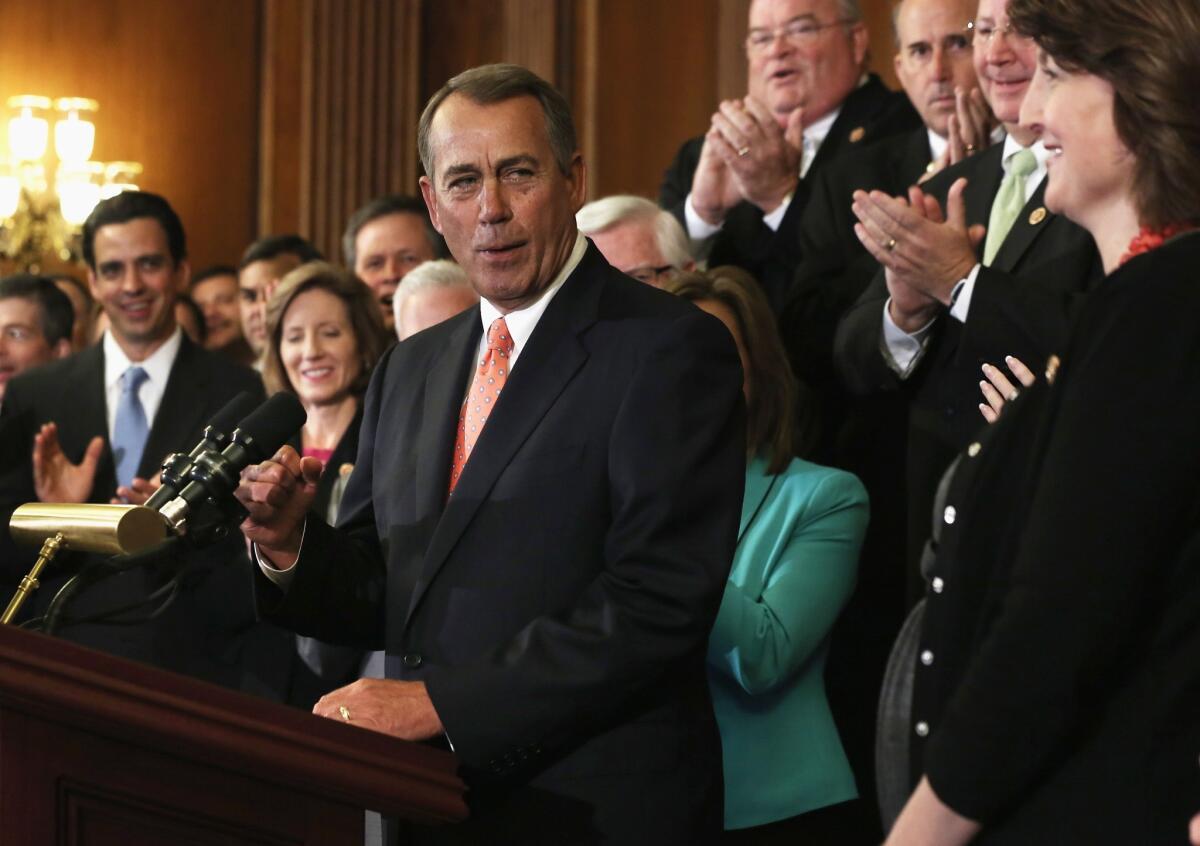Who’s to blame for Washington’s failure to compromise?

In my Sunday column, I complained that House Speaker John A. Boehner (R-Ohio) seems to have forgotten that one purpose of Congress, especially in an era of divided government, is to negotiate toward compromises without abandoning core principles.
“When Boehner described what the American people want,” I wrote, “he left one thing out: They also want their government to solve problems, even if that sometimes requires an uncomfortable dose of compromise. They aren’t seeing much of that from the House of Representatives this year.
A number of readers objected to my laying the blame at Boehner’s feet. They asked: What about President Obama? Doesn’t he deserve blame too?
“Compromise is a two-way street, and President Obama and Harry Reid have said they will not negotiate on any legislation that delays or defunds Obamacare,” Rod Russo wrote.
Indeed, other readers noted, Obama has said he won’t negotiate over the debt ceiling at all.
In one sense, the readers have a point. Both sides are claiming that they won’t compromise, even though, in the end, both sides must.
Here’s the difference: House Republicans, by demanding that Obamacare be defunded and dismantled, have demanded something that’s anathema to most Democrats -- and, importantly, something they have no hope of getting through the Senate. The result of that demand will likely be a government shutdown that didn’t need to happen -- and a needless prolonging of the fiscal logjam.
And what are Obama and the Democrats demanding? Well, on paper they’re demanding a significant increase in tax revenues, an idea that’s anathema to Republicans, just as the repeal of Obamacare is for Democrats. But the Democrats aren’t pushing very hard on that “demand.” They’re not threatening to shut down the government over it. And White House aides have said they’d accept a continuation of the current sequester levels of federal spending, a preemptive compromise from the Senate’s “demand” to end the sequester.
Obama insists he won’t negotiate over the debt ceiling, but other Democrats acknowledge that negotiations are going to happen “around” the debt ceiling, even if they’re not tied to the ceiling itself.
So no, I don’t see the two sides’ positions as equivalent. As Boehner already knows, at some point in the next two months the two parties must cut a series of deals, most importantly on the debt ceiling. But a big chunk of the House Republican conference doesn’t want to accept the reality that those deals won’t include defunding Obamacare. Taking their cues from the tea party, they are “anti-compromisers,” in the words of an elegant essay by Jonathan Rauch in the current issue of National Affairs.
“As hard-edged and ideological as Barry Goldwater or Ronald Reagan could be rhetorically, both were accomplished legislative deal-makers,” Rauch writes. “And both could get away with cutting deals because their conservative base trusted them to bargain in pursuit of conservative goals. For anti-compromisers, by contrast, the very fact that a deal is a deal makes it suspect, no matter who presents it…. They are ideologically opposed to compromise.”
That’s the problem.
ALSO:
In Washington, countdown to a shutdown
Letters: If the federal government shuts down
“Defund Obamacare” is just a sideshow to the real budget fight
Follow Doyle McManus on Twitter @doylemcmanus and Google+
More to Read
A cure for the common opinion
Get thought-provoking perspectives with our weekly newsletter.
You may occasionally receive promotional content from the Los Angeles Times.











